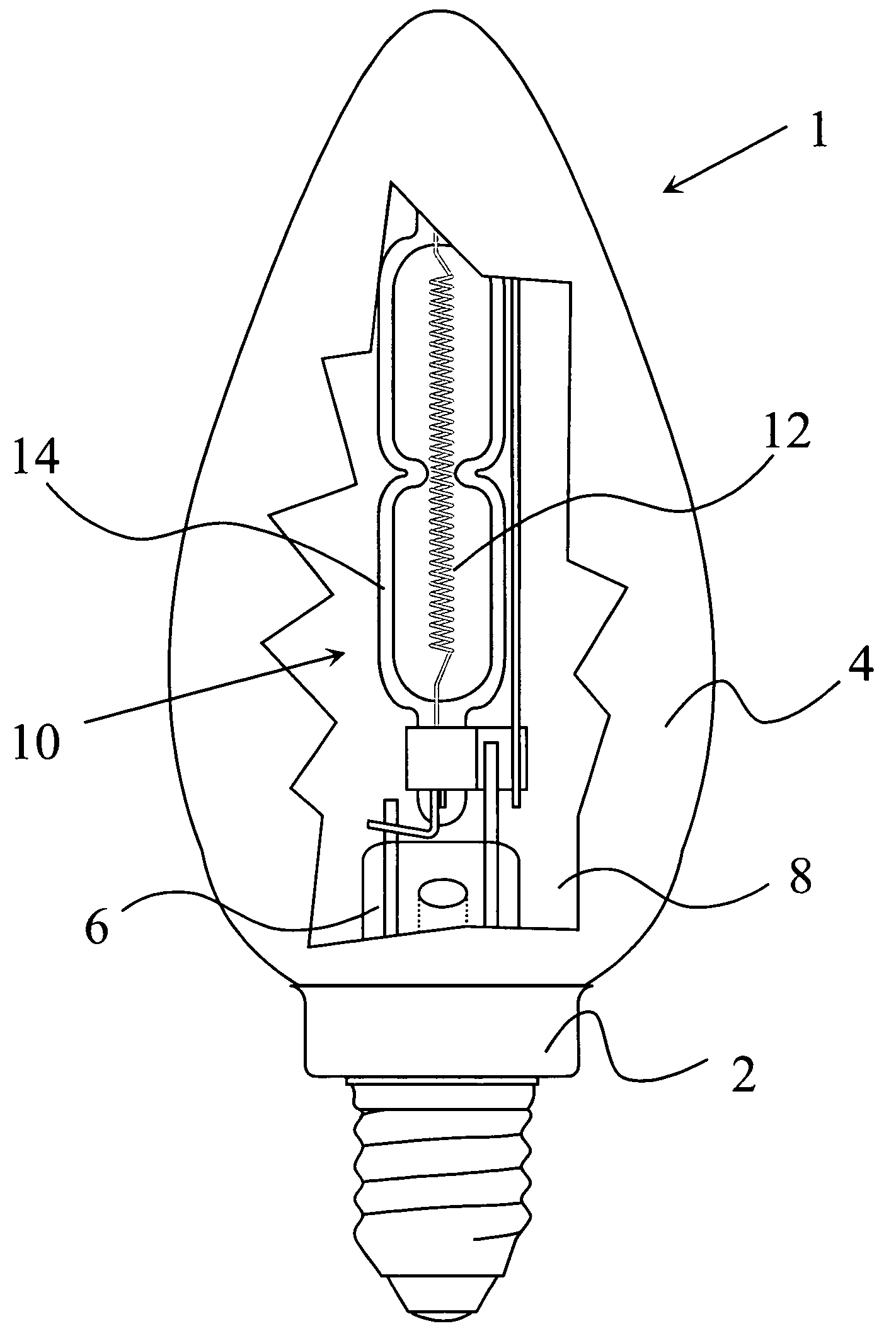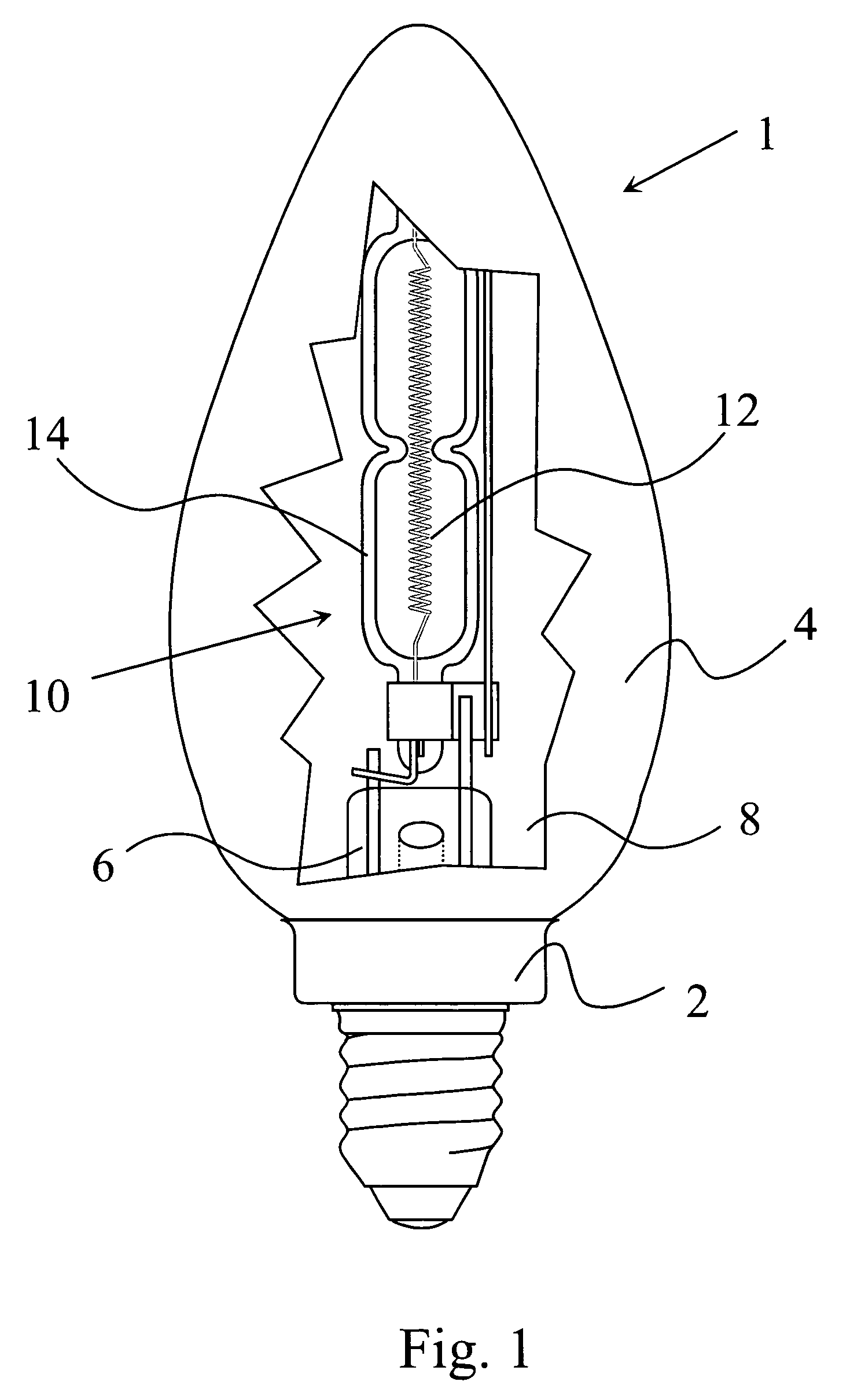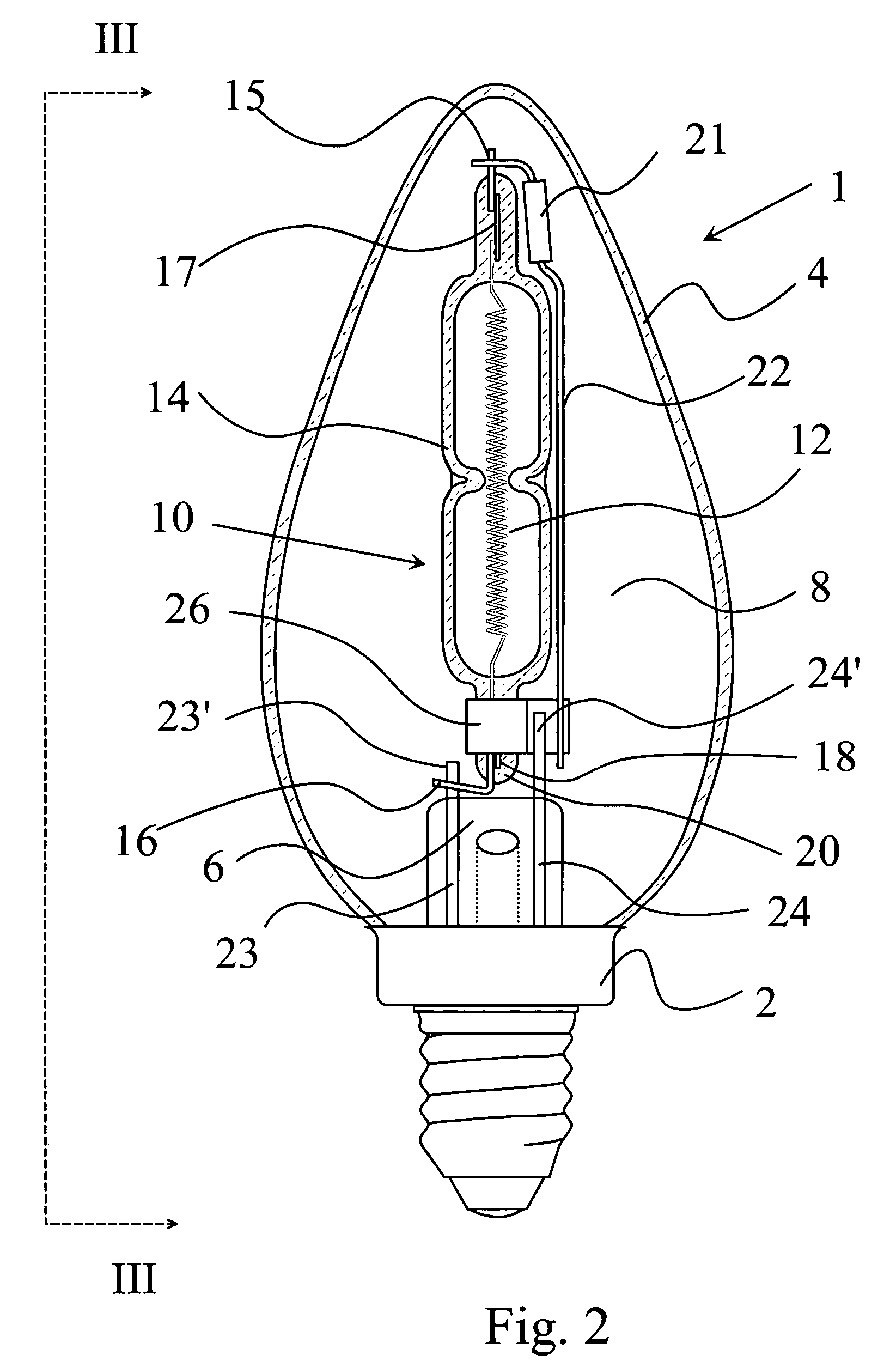Lamp with inner lamp-stem assembly and method for manufacture
a technology of inner lamp stem and lamp body, which is applied in the manufacture of electrode systems, cold cathode, electric discharge tube/lamps, etc., can solve the problems of higher efficiency, less energy-efficient, and more expensive lamps, and achieves the effect of reducing the overall length of the inner lamp stem assembly, convenient direct pinching, and compact siz
- Summary
- Abstract
- Description
- Claims
- Application Information
AI Technical Summary
Benefits of technology
Problems solved by technology
Method used
Image
Examples
Embodiment Construction
[0018] Referring now to FIGS. 1 to 3, there is shown a lamp 1 in the form of a standard household lamp, in the shown embodiment a candle lamp according to the standard B 35. The lamp 1 is equipped with a lamp base 2 and a translucent outer envelope 4. The lamp base 2 is connected to a stem 6 and the outer envelope 4. Though not shown in detail, the stem 6 and the outer envelope 4 are sealed in a region covered by the lamp base 2, hermetically sealing an inner volume 8 surrounded by the outer envelope 4. A halogen inner lamp 10 functions as the actual light source within the lamp 1. This halogen inner lamp 10 contains a filament 12 in a halogen gas atmosphere, which latter is sealed within an inner lamp jacket 14. The filament 12 is connected to inner leads 15, 16 through conductor foils 17, 18 (see also FIG. 4). These conductor foils 17, 18 are acting as the sealed lead-through conductors. The material of the foil is mostly molybdenum. The conductor foils 17, 18 are embedded in pinc...
PUM
 Login to View More
Login to View More Abstract
Description
Claims
Application Information
 Login to View More
Login to View More - R&D
- Intellectual Property
- Life Sciences
- Materials
- Tech Scout
- Unparalleled Data Quality
- Higher Quality Content
- 60% Fewer Hallucinations
Browse by: Latest US Patents, China's latest patents, Technical Efficacy Thesaurus, Application Domain, Technology Topic, Popular Technical Reports.
© 2025 PatSnap. All rights reserved.Legal|Privacy policy|Modern Slavery Act Transparency Statement|Sitemap|About US| Contact US: help@patsnap.com



